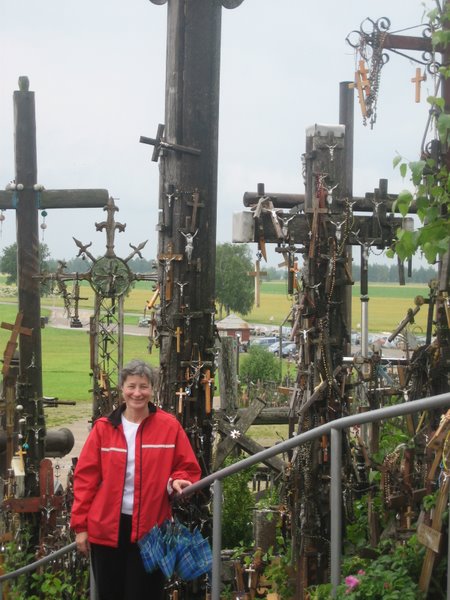I've just finished John MacArthur's Why Government Can't Save You. The easiest point in the case is the one implied in the title. Sitting here, in a former Soviet Socialist Republic, remembering just a bit of what governments can do, one doesn't have to work too terribly hard to be convinced.
It may be a finer point to think about how the US government can't save you, but not much finer. MacArthur's point is that governments are human institutions, designed, in the nature of the case (I've always wanted to write that phrase), to control man's base behaviors, and this is no condition under which to think righteousness is achievable. Constraining bad behavior is a good thing, but it's a far cry from real righteousness.
The US government was created and is now staffed by people no less fallen than any other, and so, like any other human institution, cannot SAVE you.
I think hoping for the US government to achieve any greater degree of 'righteousness' (I put it quotes to signify that it's not truly and fully godly righteousness, but rather the effort in that direction) is also a wildly misplaced and misguided hope, and something the political and religious right seem to muddle.
As Paul tells us, what we should hope for is to be left in relative peace (to pursue, obey, and worship God). I assume that part of the admonition to obey earthly authorities is so as not to annoy them into suppressing us religiously. If the king does not wield the sword for nothing, then give him nothing to wield it for. Or, as a (I think) Romanian adage goes, the bowed head avoids the sword. Fine, as long as earthly bowing--in order to avoid the sword--allows appropriate bowing before God.
Or, to put it another way, if I render to Caesar what is Caesar's, he's more likely to leave me alone about what I must render to God.
The American political philosophy is anchored in this ground. Puritans wanted to be left in peace by their government. When they weren't, they went where they would be. The American project only has its success, though, in the fact that the Puritans finally gave up their hope of returning to the old country to repurify the society they had so recently fled. (For a good treatment of this, see Robert Kagan's Dangerous Nation.)
In other words, the Puritans made a choice to remain and build a limited government that would leave them at peace to worship, instead of going back and trying to reform the old country governments.
Fast forward to the American Revolution (which MacArthur suggests was ungodly in its disobedience to the earthly authorities) and after. We codified a limited government that grants us NEGATIVE freedoms, or liberty FROM the government's telling us what to do, say, think, and worship. In other words, we will be left in peace by the government, because the government submits to laws constraining its role in our lives. Sounds like just what the Apostle was talking about--but it's anathema to POSITIVE activist government. That would be government that actively involves itself in our lives to shape and construct us into the behaviors and outcomes (it?--the government) prefers.
It seems we ought to be careful about granting too much power and authority to the state, as a "dangerously empowered" government might just decide to intrude on our NEGATIVE freedoms of religion.
Entering the political fray confuses the Christian mind and heart, MacArthur says. Rather than do kingdom work with people, Christians in politics end up trying to use human instruments of power to shape the outward lives of those with hearts still hardened by indifference to God.
I remember thinking this in the comparing abortion to the Terri Schiavo case. Religious conservatives are upset that an activist judiciary seeks to constitutionalize a nowhere to be found right to privacy. But in the Schiavo case they seemed willing to tolerate congressional activism in creating a nowhere to be found culture of life. Activism for the things I like, but not for the things I don't? The left (at least the person I read) got it even "wronger," by the way. They were complaining about this congressional activism and saying that rule of law needed to hold force, and that state and federal courts needed to 'respect and uphold the jurisdiction of the others.' Hmmm. Didn't seem like they thought that when they wanted a federal court to allow abortion.
But I digress. I finished MacArthur, and I largely agree with his claims. Perhaps my academic background leaves me anxious about the extremes to which governments can go, and since "Christian governments" are still peopled with flawed and fallen individuals, they hold out no greater eternal hope than non-Christian governments.
Tuesday, July 8, 2008
Subscribe to:
Post Comments (Atom)





1 comment:
GREAT summary of the gov't book, Ange! Helped me understand the issues better. We will be praying for the social times at your apt. and for some of your students to show up : ) Glad to hear that the testimony and sharing time went well. CMP
Post a Comment